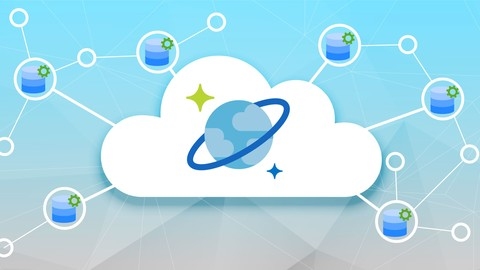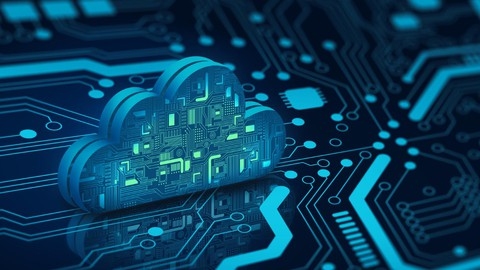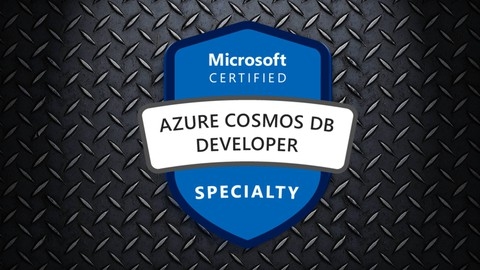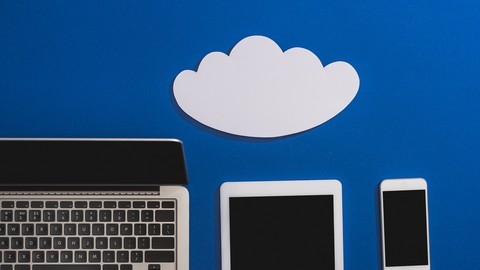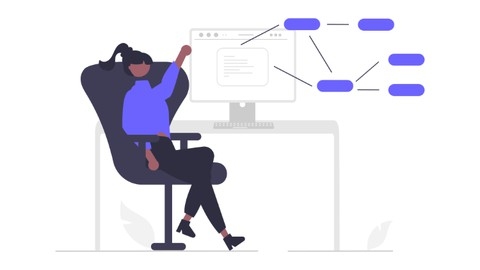Learn Azure Cosmos DB basics this weekend in 3 hour
You’ll start by learning the fundamentals of cloud computing with Azure and NoSQL databases.
This lays the groundwork for understanding Cosmos DB’s unique features and capabilities.
The course dives deep into Cosmos DB, covering its multi-model APIs, partitioning strategies, and scalability options.
You’ll learn how to provision a Cosmos DB account, work with databases, containers, and items, and manage throughput and request units.
Partitioning is a crucial concept, and the course explains partition keys, composite keys, and best practices for avoiding hot partitions.
Other key Cosmos DB features like automatic indexing, time to live (TTL), global distribution, and multi-master replication are explored in detail.
You’ll understand the different consistency levels and learn how to use the Azure CLI to manage Cosmos DB resources.
The course also covers pricing models and monitoring options, including Azure Monitor and the Cosmos DB account portal.
Security considerations are discussed to help you secure your Cosmos DB deployments.
Throughout the course, you’ll have access to PowerPoint presentations, demo resources, and hands-on activities to reinforce your learning.
Practice tests are included to assess your understanding of the material covered.
DP-420 : Microsoft Azure Cosmos DB Exam Guide [Hands-on]
The course starts by introducing you to Azure Cosmos DB.
You’ll learn about the different APIs it supports, like SQL, MongoDB, Cassandra, and more, allowing you to work with data in various formats.
From there, you’ll dive into the core concepts of Cosmos DB for NoSQL workloads.
This includes understanding the components, use cases, and how to plan and implement a Cosmos DB account.
Through hands-on labs, you’ll create databases, containers, and add items, getting practical experience.
The course covers crucial topics like request units, throughput management, partitioning strategies, and time-to-live (TTL) settings.
You’ll also explore serverless and provisioned throughput modes, as well as autoscale and standard options, helping you optimize costs.
Moving on, you’ll learn how to connect to Cosmos DB using SDKs and perform CRUD operations, batch operations, and execute queries using SQL.
The course guides you through indexing strategies, reviewing the default policy, and configuring indexes via the SDK.
Integration with other Azure services is also covered.
You’ll process change feed events, work with Azure Functions, and leverage Cognitive Search to search Cosmos DB data.
Additionally, you’ll design a replication strategy, configure regions, handle failovers, and understand consistency models.
Finally, the course dives into optimizing query and operation performance through indexing techniques.
Cosmos DB
You’ll start with an introduction and prerequisites, ensuring you have the necessary foundation.
Then, you’ll learn how to create an Azure Cosmos DB instance, database, and collections, including custom indexing and throughput management.
The course dives into data manipulation, teaching you how to add, read, and update items in collections.
You’ll also explore stored procedures, user-defined functions, and triggers, which are powerful tools for working with data in Cosmos DB.
Querying is a crucial aspect, and the course covers multiple ways to select data, including parallel queries, SQL parameters, filters, projections, equality/inequality operations, and range operations.
You’ll also learn how to delete items from collections.
Indexing is a key concept in Cosmos DB, and the course covers it in depth.
You’ll learn how to set up indexing at the document and collection levels, manage indexing for nested items, use range indexing (including on strings), and dynamically alter indexing.
Throughout the course, you’ll work with practical examples and exercises, ensuring you gain hands-on experience with Azure Cosmos DB.
Practice Tests DP-420 Microsoft Azure Cosmos DB Exam
The course consists of four comprehensive practice tests that will help you gauge your readiness and identify areas where you need further study.
With Practice Test 1, you’ll dive into core Cosmos DB concepts, data modeling techniques, and provisioning strategies.
This test covers the fundamentals, ensuring you have a solid grasp of the basics before moving on.
Practice Test 2 challenges you with scenarios related to data partitioning, consistency levels, and global distribution.
You’ll learn how to optimize performance and availability for your Cosmos DB solutions.
In Practice Test 3, you’ll tackle advanced topics like change feed, server-side programming with stored procedures, triggers, and user-defined functions.
This test prepares you for real-world scenarios where you’ll need to leverage Cosmos DB’s powerful capabilities.
Finally, Practice Test 4 tests your knowledge of monitoring, troubleshooting, and securing Cosmos DB deployments.
You’ll learn best practices for maintaining and securing your Cosmos DB solutions in production environments.
Each practice test provides detailed explanations and references to official documentation, allowing you to reinforce your understanding and fill any knowledge gaps.
With these four comprehensive tests, you’ll be well-equipped to confidently take the DP-420 exam and demonstrate your Azure Cosmos DB expertise.
DP-420 : Microsoft Azure Cosmos DB Practice Exam
The course is divided into five sets, starting with the fundamentals of designing and implementing cloud-native applications with Cosmos DB.
Set #1 lays the groundwork, introducing you to Cosmos DB’s core concepts and features.
In Set #2, you’ll dive deeper into designing and implementing Cosmos DB solutions.
This includes partitioning strategies, consistency models, and multi-region replication.
You’ll learn how to optimize performance and availability for your use cases.
Set #3 focuses on integrating Cosmos DB with other Azure services.
You’ll explore serverless computing with Azure Functions, event-driven architectures using Azure Event Grid, and real-time data processing with Azure Stream Analytics.
Moving on to Set #4, you’ll learn advanced Cosmos DB topics like global distribution, backup and restore, and security best practices.
This prepares you for real-world scenarios and challenges.
Finally, Set #5 consists of case studies that tie everything together.
You’ll apply what you’ve learned to design and implement end-to-end Cosmos DB solutions for various business requirements.
Throughout the course, you’ll gain hands-on experience with Cosmos DB’s APIs, SDKs, and tools.
Azure Cosmos DB - NoSQL DB For Busy .Net Developers
You’ll start by learning about cloud computing and the Azure cloud platform, providing essential context.
The course then dives into Azure Cosmos DB, Microsoft’s globally distributed, multi-model database service.
The real value comes from the hands-on coding experience with a .NET Web API.
You’ll learn how to insert, update, retrieve, and filter items within a Cosmos DB container.
This practical approach ensures you gain the skills to work with Cosmos DB in real-world scenarios.
Instead of just covering theoretical concepts, you’ll write actual code to interact with Cosmos DB from a .NET application.
DP-420: Designing and Implementing Cloud Apps with Cosmos DB
This course starts with practice tests that assess your knowledge of building cloud-native apps using Microsoft Azure Cosmos DB.
The first practice test covers the fundamentals of cloud-native application development with Cosmos DB.
You’ll get hands-on experience with key concepts like data partitioning, consistency models, and global distribution.
The second practice test dives deeper into advanced topics for cloud-native apps on Cosmos DB.
This includes performance tuning, monitoring, and integrating with other Azure services.
These tests provide a solid foundation for the rest of the course content.
As you progress through the course material, you’ll learn how to design and implement highly available, globally distributed cloud apps using Cosmos DB’s multi-master replication.
The course teaches you to optimize data partitioning strategies for your workloads.
You’ll also explore techniques for querying and updating data efficiently at scale.
Hands-on labs reinforce key skills like provisioning Cosmos DB accounts, configuring consistency levels, and integrating with Azure Functions and App Service.
Real-world examples demonstrate best practices for securing your Cosmos DB deployments.
Azure Cosmos DB for beginners
You’ll start by learning about Azure, Microsoft’s cloud computing platform, and how to create an Azure account and access the Azure Portal.
Once you’ve familiarized yourself with the Azure environment, the course dives into the world of NoSQL databases.
You’ll learn what NoSQL is, the different categories of NoSQL databases, and how they differ from traditional relational databases (RDMS).
This knowledge will help you understand the unique capabilities and use cases of NoSQL databases.
With a solid foundation in NoSQL, you’ll then explore Azure Cosmos DB, Microsoft’s fully managed NoSQL database service.
The course covers the various APIs supported by Cosmos DB, allowing you to work with different data models such as key-value, document, graph, and column-family.
The hands-on portion of the course guides you through creating an Azure Cosmos DB account and resource within the Azure Portal.
You’ll learn how to add a database and container (the equivalent of a collection in Cosmos DB) to your account, and how to populate it with data.
Finally, you’ll learn how to query your data in Cosmos DB using the provided query language.
This skill is crucial for retrieving and manipulating data stored in your Cosmos DB databases and containers.
DP-420: Microsoft Azure Cosmos DB Developer Practice Exam
The course covers practice questions and case studies to prepare you for the DP-420 certification exam.
You’ll start with two sets of practice questions specifically designed for the DP-420 exam.
These questions will test your knowledge and help you identify areas where you need further study.
The practice questions are an excellent way to gauge your readiness for the actual exam.
In addition to the practice questions, the course includes a set of case studies.
Case studies are scenario-based questions that assess your ability to apply your knowledge to real-world situations.
You’ll be presented with a scenario and asked to provide solutions or recommendations.
This hands-on approach ensures you can not only memorize concepts but also apply them effectively.
The combination of practice questions and case studies makes this course a comprehensive resource for anyone preparing for the DP-420 certification.
You’ll have the opportunity to reinforce your understanding of Azure Cosmos DB concepts and develop the problem-solving skills necessary to succeed in the exam and in your professional career.
DP-420: Microsoft Azure Cosmos DB Developer Exam with Labs
The course covers designing and implementing cloud-native applications across five exams.
You’ll start by learning the fundamentals of cloud-native design and how to implement it using Azure Cosmos DB.
As you progress through the exams, you’ll dive deeper into advanced topics like data modeling, partitioning, and scaling strategies for Cosmos DB.
The course also covers important areas like querying data, managing consistency levels, and integrating Cosmos DB with other Azure services.
One key aspect is learning how to design and implement cloud-native applications that can take full advantage of Cosmos DB’s globally distributed nature.
You’ll explore techniques for multi-region data distribution, conflict resolution, and ensuring high availability.
Throughout the exams, you’ll get hands-on experience with real-world scenarios and best practices for building scalable, performant, and highly available applications using Azure Cosmos DB.
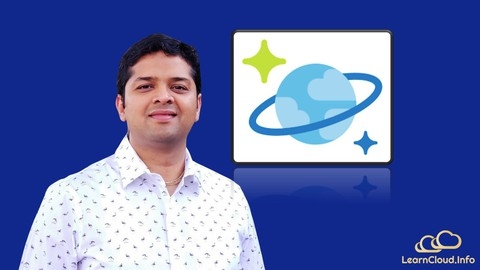

![DP-420 : Microsoft Azure Cosmos DB Exam Guide [Hands-on]](/img/best-azure-cosmos-db-courses-udemy/4985254_DP-420MicrosoftAzureCosmosDBExamGuideHands-on.jpg)
